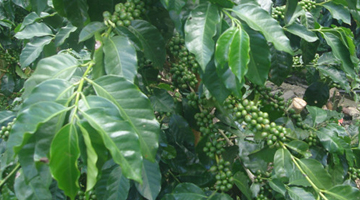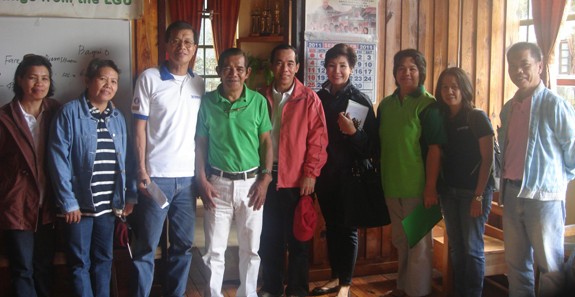 Preparations are underway for the implementation of two Science and Technology-based Farm (STBF) projects on arabica coffee in the Mountain Province.
Preparations are underway for the implementation of two Science and Technology-based Farm (STBF) projects on arabica coffee in the Mountain Province.
Mountain Province is considered a niche habitat for arabica coffee as it sustains an optimum temperature between 15─240C all year round. Arabica, which is believed to contain less caffeine than any other commercially cultivated species of coffee, best grows in a relatively cool climate.
In line with the STBF projects, an inception meeting was held recently in Sagada, Mountain Province led by staff members of the Philippine Council for Agriculture, Aquatic and Natural Resources Research and Development or PCAARRD.
Ms. Concepcion Wangdali, provincial coordinator and manager of the Bontoc Provincial Farmers’ Information and Technology Services (FITS) Center reported that arabica coffee is the “one town one product” of five municipalities in the Mountain Province, namely: Sagada, Besao, Sabangan, Tadian, and Bauko. She added that the Sagada Arabica Coffee Council provides technical support to the coffee farmers in the province and market outlet for their produce.
 Further, farmers adopted the brand name “Sagada Gold” due to the high income they earn from growing the arabica coffee.
Further, farmers adopted the brand name “Sagada Gold” due to the high income they earn from growing the arabica coffee.
A unique approach in sustaining arabica production and supporting the industry is also put into practice via a municipal ordinance whereby every household is required to plant at least five coffee trees. According to Wangali, the ordinance also applies to couples who are about to get married. Unless the couple plant coffee trees, a marriage license will not be issued.
Incidentally, the STBF projects will be implemented in the municipalities of Besao and Sagada through their respective FITS centers and Magsasaka Siyentistas (MS).
Highland Agriculture and Resources Research and Development Consortium (HARRDEC) Director Sonwright Maddul and the consortium’s Techno Gabay team participated in the meeting. Joining them were Bontoc Provincial Coordinator of the Department of Science and Technology Norberto Cobaldes and the local team of Sagada and Besao.
After the meeting, the group proceeded to the coffee farms of MS Osenio Lay-os and MS Jaime Tao-ing in Sagada and Besao, respectively.
